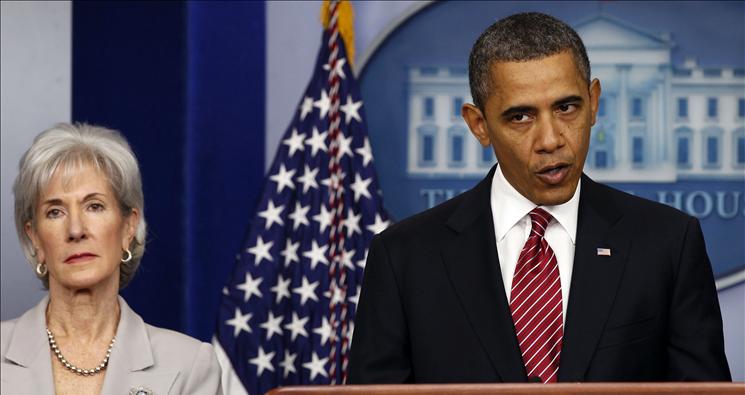Another Victory For Challengers of the Abortion-Pill Mandate
On December 4, 2012, a federal court in Brooklyn, New York ruled that various Roman Catholic entities in the New York area had legal standing to pursue their challenge to the so-called “HHS Mandate,” a series of federal regulations requiring virtually all employers to pay for their employees’ contraception, sterilization, and early abortion-inducing drugs. This significant ruling comes on the heels of a federal appeals court’s issuance of a preliminary injunction against enforcement of the Mandate against the ACLJ’s clients last week in a case out of Missouri.
The lawsuit in Brooklyn was brought by Roman Catholic entities that object to being forced to provide and pay for contraceptive coverage that violates their sincerely held religious beliefs, including the Roman Catholic Archdiocese of New York which encompasses 370 parishes in the New York area. The government argued that the court should not consider the merits of their claims, but should dismiss the case because the plaintiffs are not currently being harmed by the Mandate. The government cited a one year “temporary safe harbor” for certain non-profit organizations, which briefly delays enforcement of the Mandate against those organizations and includes a vague and unenforceable promise by the government to consider possible ways to take their religious objections into account when regulations may be enacted in the future.
In August 2012, the ACLJ filed an amicus brief on behalf of 79 members of the United States Congress in support of the plaintiffs. The ACLJ’s brief argued that the plaintiffs are concretely injured by the Mandate now, stating, “while Defendants could eventually make a mootness argument in the event that a hypothetical statutory or regulatory change is made at some point in the future that exempts Plaintiffs and other individuals and organizations in a similar position from the Mandate, that hypothetical possibility does not negate the existence of the present justiciable controversy that arises from currently existing legal requirements.” The brief also explained that the Mandate runs counter to America’s long and proud tradition of accommodating the religious beliefs and practices of all its citizens.
In allowing the Brooklyn case to move forward, the court noted, “In addition to the parties’ briefing on this motion, the Court has received an amicus brief filed by the American Center for Law & Justice and 79 members of the U.S. Congress in support of plaintiffs.” The court explained that the temporary safe harbor merely postpones a looming deadline for the plaintiffs and it does not require the government to make any changes to the Mandate; in fact, the government has made no meaningful accommodations in the ten months since the safe harbor was announced. The court stated, “The risk here of a fait accompli that would cause plaintiffs either financial or First Amendment injury is simply too high.”
In addition, the court remarked: “[T]he First Amendment does not require citizens to accept assurances from the government that, if the government later determines it has made a misstep, it will take ameliorative action. There is no, ‘Trust us, changes are coming’ clause in the Constitution. To the contrary, the Bill of Rights itself, and the First Amendment in particular, reflect a degree of skepticism towards governmental self-restraint and self-correction. . . . ‘The whim, self restraint, or even the well reasoned judgment of a government official cannot serve as the lone safeguard of First Amendment rights.’”
The Brooklyn decision is a significant development because a few other courts had previously dismissed challenges brought by religious non-profit organizations that are subject to the Mandate on standing grounds without considering the merits of their claims. The decision will be helpful around the country because many of the dozens of cases that have been filed challenging the Mandate were brought by religiously affiliated schools and other non-profit organizations that raise similar claims.
Also, in light of the decision, the government is now left with two equally implausible arguments in the Brooklyn case: the Mandate does not substantially burden the plaintiffs’ religious freedom (which it clearly does), or the Mandate is the least restrictive means of achieving a compelling government interest (which it clearly is not). The court should follow the lead of four other federal courts that have already issued preliminary injunctions against enforcement of the Mandate against for-profit businesses with religious principles by rejecting these two arguments.
